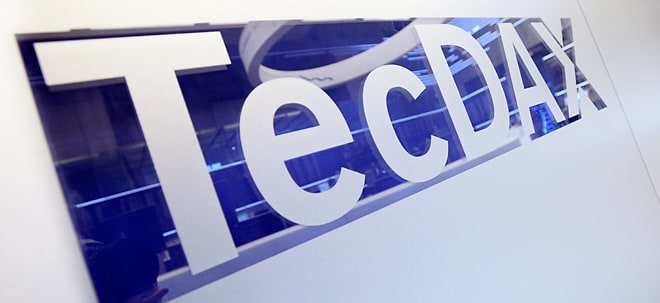4 Canadian E&P Stocks That Stand Out in a Weak Oil Market
Werte in diesem Artikel
The Zacks Oil and Gas - Exploration and Production - Canadian industry is navigating choppy waters. A weaker commodity deck, coupled with a stronger Canadian dollar, is eroding margins and dampening cash flows. For many, dividend growth and buybacks now seem unsustainable under current strip prices. Capital spending is getting tighter, just as global demand signals begin to waver. Add in the long-term impact of EV adoption and climate policy, and the outlook gets even more cautious. Yet, not all is gloomy. Canada’s LNG breakthrough — marked by its first shipment to Asia — is a pivotal moment, opening doors to premium markets and shrinking the natural gas discount. While most names remain under pressure, a few are standing out with scale, discipline, and upside leverage. Four names — ARC Resources Ltd. AETUF, Ovintiv Inc. OVV, Obsidian Energy Ltd. OBE, and InPlay Oil Corp. IPOOF — offer differentiated exposure and strategic execution that could reward patient investors in a shifting global energy landscape.About the IndustryThe Zacks Oil and Gas - Canadian E&P industry consists of companies primarily based in Canada, focused on the exploration and production (E&P) of oil and natural gas. These firms find hydrocarbon reservoirs, drill oil and gas wells, and produce and sell these materials to be refined later into products such as gasoline, fuel oil, distillate, etc. The economics of oil and gas supply and demand are the fundamental drivers of this industry. In particular, a producer’s cash flow is primarily determined by the realized commodity prices. In fact, all E&P companies' results are vulnerable to historically volatile prices in the energy markets. A change in realizations affects their returns and causes them to alter their production growth rates. The E&P operators are also exposed to exploration risks where drilling results are comparatively uncertain.4 Key Investing Trends to Watch in the Oil and Gas - Canadian E&P IndustryWeaker Oil Prices and Rising Canadian Dollar Pressure Revenues: Canadian oil producers are facing twin macro headwinds — weakening oil prices and a stronger Canadian dollar. In particular, for oil-exporting companies, it significantly reduces revenues converted to Canadian dollars. This squeeze on top-line figures directly impacts free cash flow and limits capital return flexibility. For some names, that means scaling back share buybacks and adjusting dividend strategies, even as market valuations remain elevated. In a high-cost inflationary environment, where capital discipline is key, these macro shifts erode investor confidence in oil-heavy E&Ps that lack diversified production or global exposure. Until pricing support re-emerges or the Canadian dollar weakens, earnings visibility remains murky.Capital Allocation Strain Amid Commodity Volatility: Tight capital budgets are colliding with falling cash flow expectations, especially for Canadian E&Ps leveraged to heavy oil. For some, the execution of dividends and buybacks is becoming unsustainable under current strip prices — a signal that distribution levels may be cut unless crude prices rebound. April’s surprise OPEC+ supply boost and U.S. tariff-related margin erosion have been weighing on the current prices. As a result, discretionary spending is being reeled in across the board. Unless oil prices stabilize or financing conditions ease, capital allocation discipline will increasingly come at the expense of shareholder returns — a trend that could persist in the near term.Canada’s LNG Breakthrough Unlocks Global Market Potential: Canada’s entry into the global LNG market through the launch of LNG Canada marks a major turning point for the country’s oil and gas E&P industry. For decades, Canadian producers have relied almost exclusively on the U.S. pipeline system, exposing them to pricing discounts and limited growth. But the inaugural shipment to South Korea — part of a $40-billion project — now opens the door to premium Asian markets. As Kitimat ramps up to export 14 mtpa and potentially doubles output in Phase 2, this diversification will gradually reduce the Canadian gas discount to U.S. hubs. The shift is expected to strengthen Canadian natural gas prices.Electric Cars and Green Policies Taking Hold: The IEA forecasts a major slowdown in how fast global oil demand grows after 2026. This is driven by several factors: more and more people are buying EVs, freight trucks are increasingly running on cleaner fuels like LNG, and the power industry is moving away from fossil fuels. Because of these shifts, the IEA believes that overall oil demand could hit its highest point (peak) as early as 2030. For oil prices, this creates a lot of uncertainty in the long run. As the demand for gasoline and diesel either stops growing or even shrinks, especially in wealthier countries, investors might start to question whether it's wise to fund new, long-term oil projects. This fundamental shift makes oil companies that rely on high prices and constant growth particularly vulnerable to losing investor interest and seeing their stock values drop.Zacks Industry Rank Indicates Bearish OutlookThe Zacks Oil and Gas - Canadian E&P is a nine-stock group within the broader Zacks Oil - Energy sector. The industry currently carries a Zacks Industry Rank #165, which places it in the bottom 33% of 245 Zacks industries.The group’s Zacks Industry Rank, which is basically the average of the Zacks Rank of all the member stocks, indicates challenging near-term prospects. Our research shows that the top 50% of the Zacks-ranked industries outperforms the bottom 50% by a factor of more than 2 to 1.The industry’s position in the bottom 50% of the Zacks-ranked industries is a result of a negative earnings outlook for the constituent companies in aggregate. Looking at the aggregate earnings estimate revisions, it appears that analysts are becoming pessimistic about this group’s earnings growth potential. While the industry’s earnings estimates for 2025 have gone down 27.8% in the past year, the same for 2026 have fallen 35.1% over the same timeframe.Despite the dim near-term prospects of the industry, we will present a few stocks that you may want to consider for your portfolio. But it’s worth taking a look at the industry’s shareholder returns and current valuation first.Industry Underperforms S&P 500 & SectorThe Zacks Oil and Gas - Canadian E&P industry has fared worse than the Zacks S&P 500 composite as well as the broader Zacks Oil – Energy sector over the past year.The industry has moved down 9.4% over this period compared with the broader sector’s decrease of 1.3% and the S&P 500’s rise of 16.9%.One-Year Price Performance Industry's Current ValuationSince oil and gas companies are debt-laden, it makes sense to value them based on the Enterprise Value/ Earnings before Interest Tax Depreciation and Amortization (EV/EBITDA) ratio. This is because the valuation metric takes into account not just equity but also the level of debt. For capital-intensive companies, EV/EBITDA is a better valuation metric because it is not influenced by changing capital structures and ignores the effect of non-cash expenses.On the basis of the trailing 12-month EV/EBITDA ratio, the industry is currently trading at 4.76, significantly lower than the S&P 500’s 17.98. It is also slightly below the sector’s trailing 12-month EV/EBITDA of 4.84X.Over the past five years, the industry has traded as high as 14.49X, as low as 2.95X, with a median of 5.14X, as the chart below shows.Trailing 12-Month Enterprise Value-to EBITDA (EV/EBITDA) Ratio (Past Five Years) 4 Stocks in focusInPlay Oil: InPlay Oil is a Canadian junior upstream company focused on light oil development in Alberta. It operates long-life, low-decline Cardium assets with strong free adjusted funds flow and disciplined capital allocation. Production is set to exceed 18,750 barrels of oil-equivalent per day (boe/d) in the second half of this year, with 50% oil. A recent Pembina acquisition boosts 2025 cash flow per share significantly. Backed by low leverage, strong hedges, and a double-digit dividend yield, InPlay prioritizes sustainability and shareholder returns. The Zacks Rank #2 (Buy) operator has a market capitalization of around $215 million. InPlay Oil carries a Value Score of A, while the stock has decreased 21% in a year. You can see the complete list of today’s Zacks #1 Rank (Strong Buy) stocks here. Price and Consensus: IPOOFARC Resources: ARC Resources stands as Canada’s largest pure-play Montney operator and ranks third in the nation for natural gas production. The company has built a solid reputation for consistent operational execution and strong financial performance. With an investment-grade credit rating, ARC focuses on maintaining cost leadership, growing its condensate production organically, and capitalizing on LNG market opportunities. Its sizeable, high-quality asset base supports sustainable long-term output. ARC aims to triple its free funds flow per share by 2028, leveraging efficiencies and scale to drive profitability.Notably, the Zacks Consensus Estimate for AETUF’s 2025 earnings per share indicates 11% year-over-year growth. It has a trailing four-quarter earnings surprise of roughly 20.7%, on average. ARC Resources shares have gone up 18% in a year. The stock carries a Zacks Rank #3 (Hold). Price and Consensus: AETUFOvintiv: Ovintiv is a leading North American independent E&P company with a diverse portfolio spanning the Montney, Anadarko, and Permian basins. Its 2019 acquisition of Newfield Exploration added scale, improved its liquids weighting, and unlocked operational synergies. The company has maintained a disciplined approach to cost reduction, supporting improved free cash flow generation. Ovintiv also benefits from a proactive hedging program that provides downside protection in volatile commodity markets, reinforcing its ability to deliver stable cash flows across cycles.Ovintiv beat the Zacks Consensus Estimate for earnings in each of the last four quarters. It has a trailing four-quarter earnings surprise of roughly 27.8%, on average. The #3 Ranked company carries a Value Score of A and also a VGM Score of A. With a market capitalization of around $10.3 billion, OVV has decreased 13% in a year.Price and Consensus: OVVObsidian Energy: Obsidian Energy is a Canadian exploration and production company focused on oil-weighted assets in Alberta’s Peace River, Cardium, and Viking regions. Producing around 34,000 boe/d, it aims to reach 50,000 boe/d by 2026, driven by growth in its heavy oil portfolio. With a disciplined strategy built on share buybacks, debt reduction, and bolt-on acquisitions, Obsidian balances near-term cash flow with long-term asset growth. It maintains strong technical capabilities and a clear focus on delivering shareholder returns.Notably, the Zacks Consensus Estimate for OBE’s 2025 earnings per share indicates 199.5% year-over-year growth. The company, with a Value Score of A, has a market capitalization of $399 million. Obsidian Energy, carrying a Zacks Rank of 3, has seen its stock go down 19% in a year.Price and Consensus: OBE#1 Semiconductor Stock to Buy (Not NVDA)The incredible demand for data is fueling the market's next digital gold rush. As data centers continue to be built and constantly upgraded, the companies that provide the hardware for these behemoths will become the NVIDIAs of tomorrow.One under-the-radar chipmaker is uniquely positioned to take advantage of the next growth stage of this market. It specializes in semiconductor products that titans like NVIDIA don't build. It's just beginning to enter the spotlight, which is exactly where you want to be.See This Stock Now for Free >>Want the latest recommendations from Zacks Investment Research? Today, you can download 7 Best Stocks for the Next 30 Days. Click to get this free report Arc Resources Ltd. (AETUF): Free Stock Analysis Report Obsidian Energy (OBE): Free Stock Analysis Report INPLAY OIL CP (IPOOF): Free Stock Analysis Report Ovintiv Inc. (OVV): Free Stock Analysis ReportThis article originally published on Zacks Investment Research (zacks.com).Zacks Investment ResearchWeiter zum vollständigen Artikel bei Zacks
Quelle: Zacks

